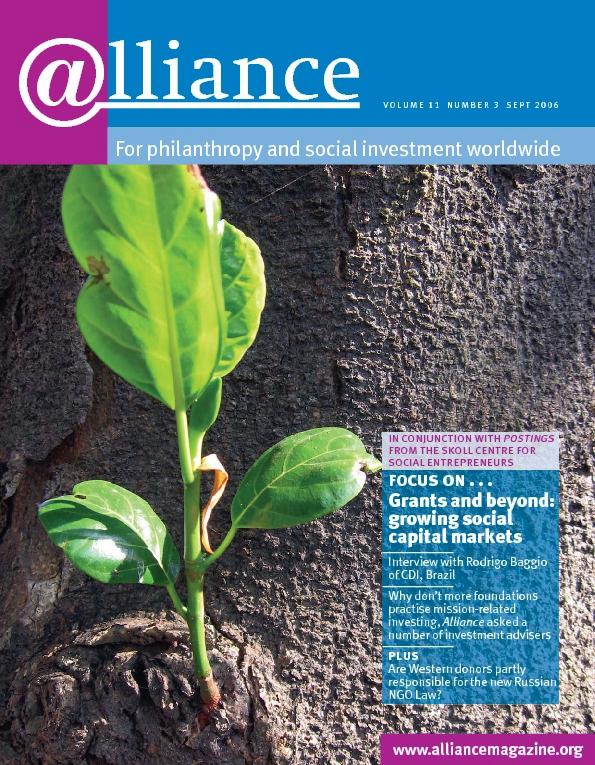Kenya has begun to witness the first stirrings of social investment following the successful launch of a bond issue on the stock market on behalf of a microfinance NGO, Faulu; formation of the Kenya Social Investment Forum (KSIF); and moves to lobby the government to legislate for a percentage of all pension funds to be invested in Social Investment Securities.
The Faulu bond issue took place in early 2005, raising Sh500 million (almost US$7 million). It was underwritten by Agence Française de Développement (AFD), but as the bond sold out AFD was not in the end required to come up with any funds. The bond is now listed on the Nairobi Stock Exchange.
A year later, in March 2006, the group of organizations behind the bond issue came together with others to form KSIF. KSIF now includes the Nairobi Stock Exchange, a number of stockbrokers and fund managers, some local NGOs and corporations, and UK-based NGO Allavida.
KSIF now intends to press ahead and get five major microfinance institutions, including the Kenya Women Finance Trust, Jamii Bora and Equity Bank, with a combined client base of over 2 million, to access finance through creating bonds listed on the Nairobi Stock Exchange.
KSIF has also requested the Government to enact a law requiring that 5 per cent of all pension funds be invested in Social Investment Securities at the Nairobi Stock Exchange. According to the chair of KSIF’s steering committee, Kibuga Kariithi, the organization believes this would create demand from the institutional investors, which would then be matched by structured products from investment bankers. ‘We know for sure that institutional investors are holding about Sh400 billion at the moment. We are saying, let’s take 5 per cent of that, which is Sh20 billion, as seed capital, and source for the rest at the NSE,’ said Kariithi.
Meanwhile, one of the most urgent priorities for social investment in Kenya is that of housing. In Nairobi alone, an estimated 9 million housing units are needed. Kariithi believes that KSIF has a role to play in harnessing private sector funds for mass public works like building programmes. This could result, he believes, in the poorer part of Kenya’s society growing at 10 per cent per annum, reversing the current trend for the rich to get richer and the poor to get poorer, a state of affairs that clearly can’t go on. ‘Places like Kibera cannot continue to exist because of problems from a variety of areas. Security is the major one,’ he said.
For more information contact Kibuga Kariithi at ashbhu@africaonline.co.ke or Linda Ihuthia at lihuthia@allavida.or.ke


Comments (0)